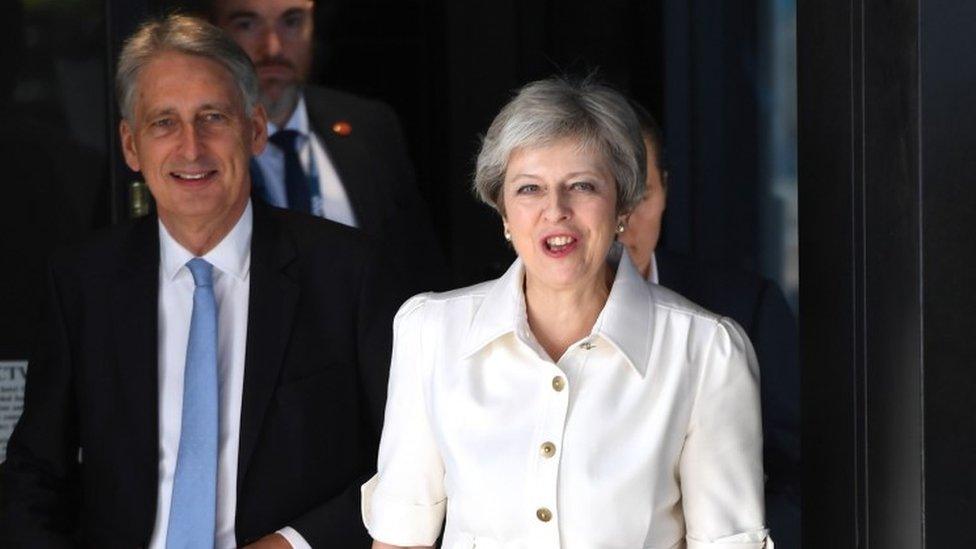Budget 2018: 'PM has spent his money before he stands up'
- Published

Philip Hammond and Theresa May have a troubled partnership, says Nick Watt
It is a general rule of thumb that chancellors and prime ministers end up falling out.
Prime ministers tend to feel the electoral pressure to spend, while chancellors regard themselves as the prudent guardian of the nation's public finances.
Gordon Brown, never one to shy away from spending, railed at Tony Blair for having "stolen my f***ing budget" in 2000 after a dramatic NHS spending pledge by the then prime minister.
Alarmed by a winter flu crisis, Blair announced that the government would aim for spending on the NHS to match the European average.
'Outrageous behaviour'
History is not exactly repeating itself two decades later. But there are similarities after Theresa May announced in the summer that an extra £25bn a year would be spent on the NHS by 2023.
The prime minister, whose aides fear Labour has struck a chord with its warnings that austerity has run its course, went a step further this autumn when she pledged in her conference speech to end austerity. There were additional spending pledges on social housing and on freezing fuel duty.
Friends of Philip Hammond complain that the prime minister has behaved in an "outrageous" way by spending £95bn before he even stands up this afternoon. One ally told me: "It is outrageous. The prime minister has spent his money before he stands up."
The £95bn is understood to refer to the "scoring" in the Treasury red book for the spending commitments that will be fully outlined by the chancellor in his spending round next year. The extra spending on the NHS is understood to account for £83bn of the £95bn. These sums will cover the period from 2020 to 2023.
The Treasury has reluctantly accepted the extra spending in light of Labour's success at last year's general election, in saying voters are fed up with a decade of austerity.
Allies of the chancellor complain privately that had Philip Hammond actually been allowed to make the case for a benign market economy during the 2017 election campaign, then the Tories would probably be in a stronger political position now.
But senior Treasury sources say two helpful developments will help the chancellor meet the prime minister's spending pledges:
Figures published last week by the Office for National Statistics showed the gender pay gap has fallen to its lowest level on record were encouraging
An expected revision by the Office for Budget Responsibility of tax receipts will hand the chancellor what the FT has described as a £13bn annual windfall
One Treasury source told me: "Luckily the fiscal environment is better. But it is still a difficult backdrop."
A friend of the chancellor welcomed the £13bn windfall. But he cautioned that the chancellor needs a guarantee that it will deliver every year.
The chancellor and prime minister, who have known each other since they were students in Oxford in the mid 1970s, will no doubt put on a show of friendship today. But this is a troubled partnership.
It may not be long before tensions rise again after the chancellor suggested that the prime minister's spending plans may well depend on the success of her Brexit negotiations.
- Published29 October 2018